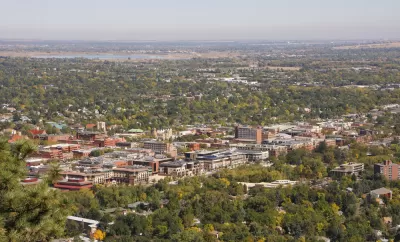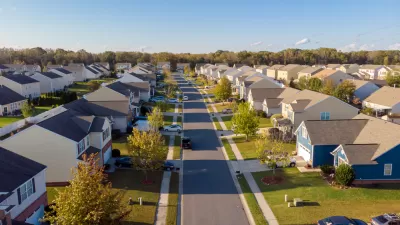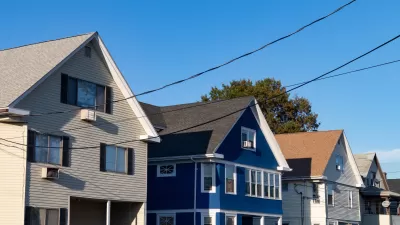Voters in the city of Boulder appeared to reaffirm limits on how many unrelated people can live in a residence.

As of this writing, Boulder residents this week appeared to have rejected Question 300, "which asked whether to change the number of unrelated people who can live in a residence," according to an article by Jennifer Campbell-Hicks for 9 News.
The ballot language read as follows: "Shall the City of Boulder expand access to housing by allowing all housing units to be occupied by a number of people equal to the number of legal bedrooms, plus one additional person per home, provided that relevant health and safety codes are met?"
If approved, the advisory vote would push the city of Boulder to increase the number of unrelated people living in a residence. A failed vote means the city's current limits—three or four people depending on the building—will stay in place.
Two groups emerged to support and oppose Question 300. In support, Bedrooms Are for People argued that the city's laws run afoul of the federal Fair Housing Act as well as the progressive values of many residents of the city. In opposition, No on Bedroom$ argued that "Question 300 would "dismantle your neighborhood by turning single-family homes into overcrowded de facto dormitories."
FULL STORY: Boulder 'Bedrooms Are For People' measure trails in results

Planetizen Federal Action Tracker
A weekly monitor of how Trump’s orders and actions are impacting planners and planning in America.

Maui's Vacation Rental Debate Turns Ugly
Verbal attacks, misinformation campaigns and fistfights plague a high-stakes debate to convert thousands of vacation rentals into long-term housing.

San Francisco Suspends Traffic Calming Amidst Record Deaths
Citing “a challenging fiscal landscape,” the city will cease the program on the heels of 42 traffic deaths, including 24 pedestrians.

Defunct Pittsburgh Power Plant to Become Residential Tower
A decommissioned steam heat plant will be redeveloped into almost 100 affordable housing units.

Trump Prompts Restructuring of Transportation Research Board in “Unprecedented Overreach”
The TRB has eliminated more than half of its committees including those focused on climate, equity, and cities.

Amtrak Rolls Out New Orleans to Alabama “Mardi Gras” Train
The new service will operate morning and evening departures between Mobile and New Orleans.
Urban Design for Planners 1: Software Tools
This six-course series explores essential urban design concepts using open source software and equips planners with the tools they need to participate fully in the urban design process.
Planning for Universal Design
Learn the tools for implementing Universal Design in planning regulations.
Heyer Gruel & Associates PA
JM Goldson LLC
Custer County Colorado
City of Camden Redevelopment Agency
City of Astoria
Transportation Research & Education Center (TREC) at Portland State University
Jefferson Parish Government
Camden Redevelopment Agency
City of Claremont





























